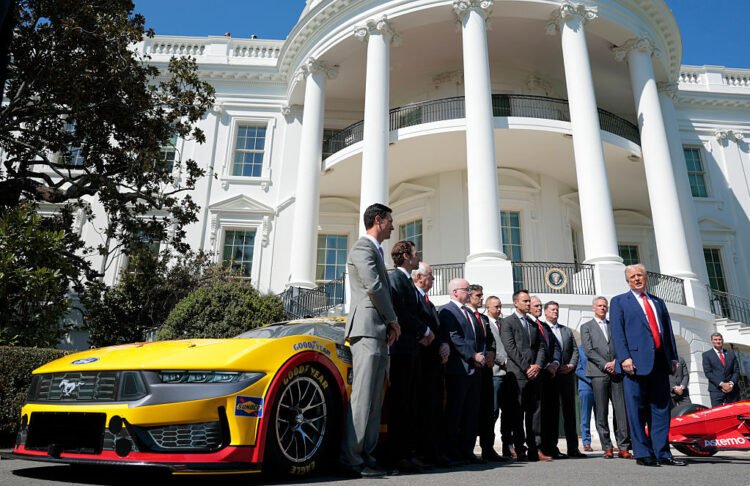WASHINGTON, D.C. — In the wake of President Donald Trump’s sudden reversal on new tariffs and his pivot toward trade negotiations, the president offered a strikingly candid explanation for his decision-making style: it’s all about instinct.
“More than anything else, I go with my gut,” Trump told reporters this week. “You almost can’t map it out—it’s really just instinct.”
This statement was the latest in a pattern that has come to define Trump’s second term—a presidency that often seems less tethered to formal procedures and more reflective of a single individual’s impulses, moods, and grievances. From foreign policy to domestic regulation, Trump’s personal style of governance has increasingly bypassed traditional systems of checks, balances, and consultation.
“We’re watching a democratic system bend to the will of one man in real-time,” said Tim Naftali, a historian at Columbia University. “He acts like a 19th-century monarch—when he sneezes, the world reacts.”
Critics argue that Trump has embraced a style of leadership that thrives on unpredictability and centralized control. Gone are the usual deliberative sessions and stakeholder meetings—instead, decisions often emerge from sudden declarations or even off-the-cuff remarks. Whether it’s imposing tariffs or rewriting museum programming, Trump has turned the presidency into a direct extension of his personal priorities.
For instance, in just the past few months, Trump has installed himself as the chair of the Kennedy Center, mandated ideological purges at Smithsonian institutions, ordered investigations of former officials, and removed environmental regulations without public consultation—all by executive order.
“When I say ‘do it,’ they do it,” Trump said proudly of his second-term influence.
The White House, however, sees this as a return to leadership with clarity and conviction. Press Secretary Karoline Leavitt defended the president’s moves, saying, “President Trump was elected to make bold decisions. He’s delivering on that mandate. The American people should trust his instincts.”
But former officials, including Leon Panetta, a White House chief of staff under President Bill Clinton, are warning about the risks of this approach.
“If everything’s based on instinct, you’re gambling with national policy,” said Panetta. “Skipping the hard work and analysis opens the door to catastrophic missteps.”
Trump’s actions on trade underscore the stakes. Earlier this month, he declared trade deficits a national emergency, triggering sweeping new tariffs. The stock market plunged. Days later, amid economic turbulence and pressure from foreign governments, Trump abruptly paused many of the tariffs for a 90-day negotiation period.
Behind closed doors, Trump reportedly told allies that foreign leaders were “kissing my ass” to influence his trade policy. One of his advisers, Peter Navarro, said the administration now plans to negotiate “90 deals in 90 days.”
While some view this bold agenda as refreshingly decisive, others are uneasy. Scott Lincicome of the conservative Cato Institute warned that “the entire global trade framework is now at the mercy of one man’s whims.”
“Real negotiations take time and expertise,” Lincicome said. “What we’re more likely to get is a flurry of shallow deals followed by loud proclamations of victory.”
Even beyond U.S. borders, Trump’s ambitions are expanding. He’s reignited interest in purchasing Greenland—a long-shot geopolitical goal that now has Vice President JD Vance personally involved in talks with local leaders.
“We can’t ignore the president’s interests,” said Vance. “This is about strategic vision.”
Trump himself has long blurred the line between personal feeling and objective fact. During a past lawsuit, he claimed that his net worth fluctuated based on his emotions. Asked directly if his fortune really changed based on how he felt, Trump replied, “Yes. It’s about my general attitude at the time.”
That mindset appears to be driving his second-term agenda more than ever. In his own words, it’s not strategy or consultation that shapes his presidency—it’s instinct. And for better or worse, that instinct now steers the most powerful office in the world.

 English
English



























































